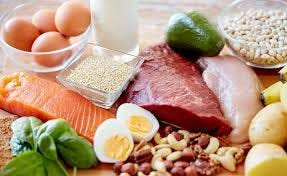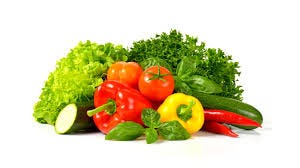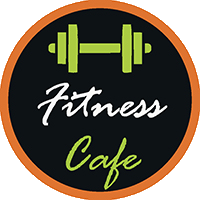#theblog
Fat loss Tips- You are what you eat
- Eat more protein

– Protein is great! Upping your protein intake will help protect your muscles from breakdown when your calories are down. Protein also stimulates glucagon secretion. Glucagon is a hormone that will help liberate stored fat. It is important to consume protein with every meal. When working to lose body fat replacing carbohydrate calories with calories from protein is an excellent strategy for controlling insulin (an essential component of fat loss).
2. Eat more often
– More frequent feedings will provide your body with a constant stream of nutrients, helping prevent catabolism (muscle breakdown) when you are calorie deficient. Another way to guarantee that you do now lose any muscle whiles dieting is by weight training Plus grazing” can help curb hunger because you are constantly eating. Consistently eating more frequently has been shown to increase the thermic effect of food. The thermic effect of food is the increase in your metabolism elicited by eating. With a higher thermic effect of food you will burn more calories throughout the day.
3.Make green leafy vegetables your friend

– High protein intakes can make
your diet acidic but increasing your vegetable intake will help counter act this and make sure your body is running in top condition. Green vegetables are also loaded with vitamins, cancer preventing phytonutrients, low impact carbohydrates, and fiber. If losing bodyfat is important to you then you need to bump up your green vegetable intake.
4. Save starches for after workouts

Nutrient timing is one of the foundations of the Naked Nutrition approach. A cornerstone of nutrient timing is carbohydrate timing. Low glycemic carbohydrates (green vegetables, fruits, beans, etc) should make up the bulk of your carbohydrate intake but don’t shy away from starches (sweet potatoes, brown rice, quinoa, etc) and some simple sugars (dextrose and maltodextrose) after your workouts. Research has shown that when you consume carbohydrates around your workout these carbohydrates do not get stored at fat. They will actually help improve recovery so that you can train harder next time.
5.Eat Volumes
Eating foods that are high in volume but not calories (nutrient dense not CALORIE dense) will keep you full but not fat. This is a huge secret of the exceptionally lean. People that maintain low body fat percentages don’t walk around hungry all the time. They understand the important of eating nutrient dense but not calorie dense foods. Spinach, lettuce, green peppers, and broccoli are great foods that you can eat lots of with out getting a lot of calories. Egg whites expand a lot if you beat them long enough (just not too long so you make meringue) and make your feel like you are eating a lot more calories than you are.
6.Don’t cut fats too low

Reduce your saturated fat intake (so it is not excessive, 7–10% of calories is good) but make sure you get enough monounsaturated (olive oil) and polyunsaturated (fish oil, flaxseed, and nuts) fats. It was originally thought that removing fat from a diet would be ideal because fat has over twice calories per gram compared to carbohydrates or protein. But certain fats are important for healthy skin, cardiovascular function, and even fat loss. Fats also can increase satiety and the palatability of meals. So don’t cut your fats too low!
fitnesscafe.fit ( best fitness center of bangalore)


